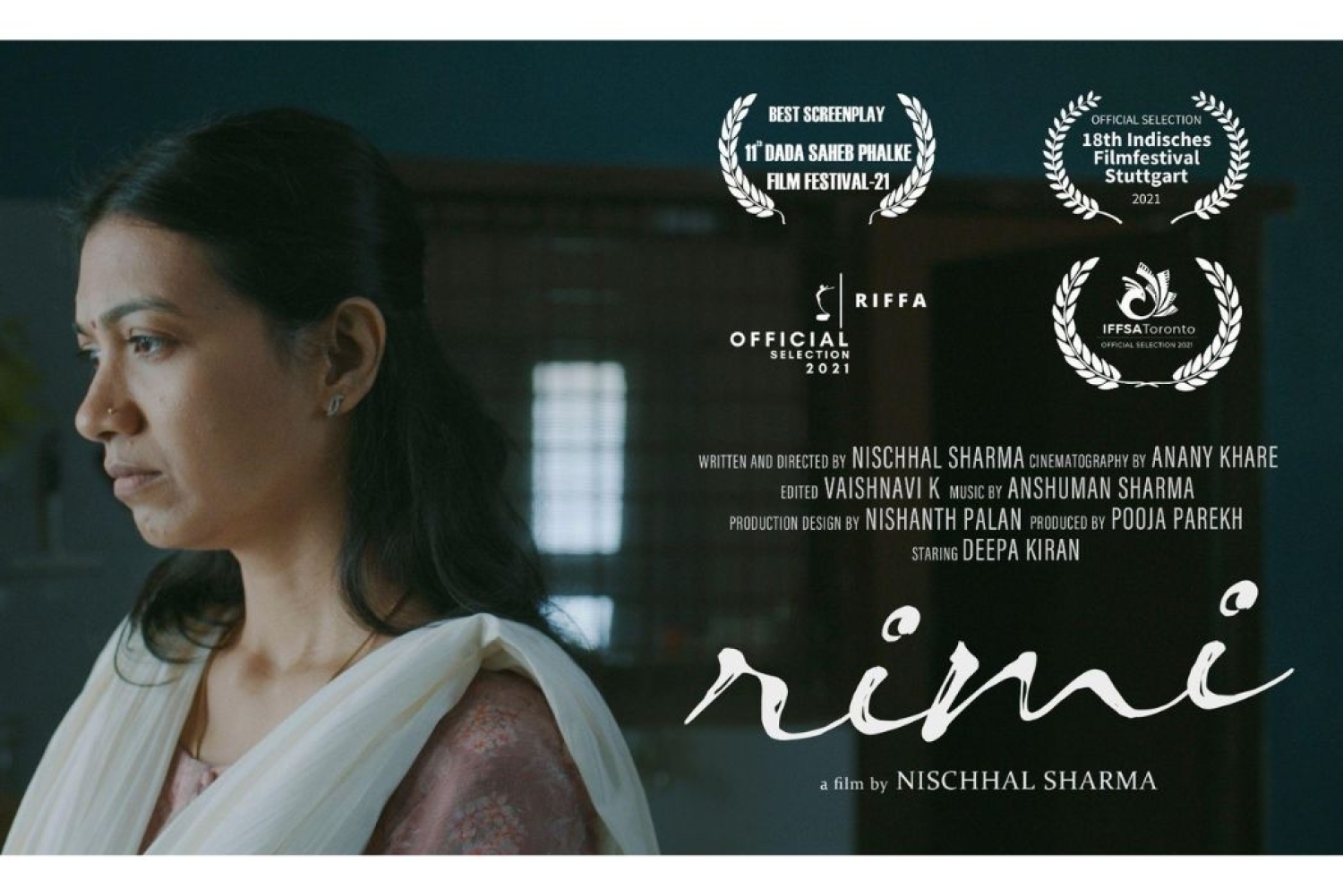

In a quiet 13-minute film called Rimi, a middle-aged Indian housewife pauses on a rainy day to rediscover a part of herself she thought was lost. The short’s writer-director, Nischhal Sharma, is a filmmaker who found inspiration for Rimi in the everyday sacrifices of women like her own mother. Sharma’s debut short has traveled to more than a hundred film festivals worldwide and garnered numerous awards, all while telling a simple, striking story of a woman’s first step towards self-discovery.
Early Sparks of a Storyteller
Growing up in a home where movies weren’t encouraged, Nischhal Sharma turned to books and photography to fuel her imagination. At age 11, reading The Kite Runner moved her to tears and opened her eyes to the power of storytelling. An introverted only child, she found refuge in writing poetry and capturing images, even pairing her photos with little poems on Instagram. By 14, Sharma had gathered neighborhood friends to shoot her first short film with a handheld camera and self-taught editing. 'Till date, my mother says that’s the film she’s most proud of,' Sharma laughs, recalling how she created a ten-minute film with no formal training. From an early age, she also showed a keen empathy for people’s struggles, a quality that now guides the kind of stories she strives to tell on screen.
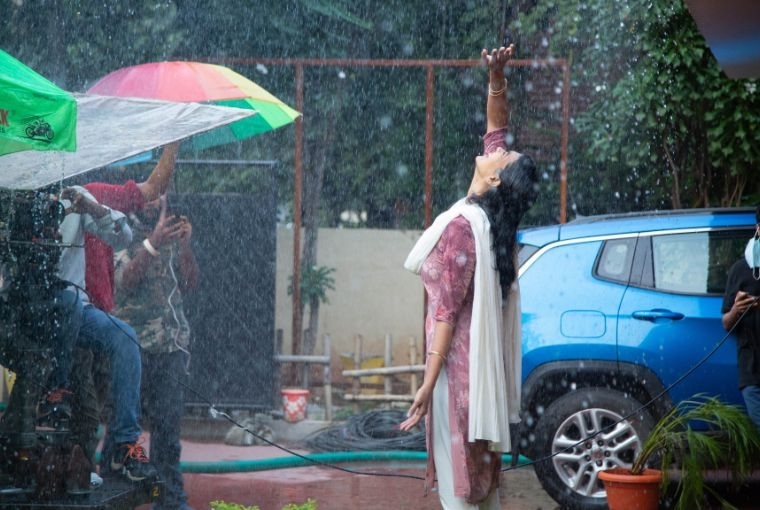
Awakening Rimi: Inspiration and Story
The idea for Rimi came to Sharma during the 2020 lockdown, when she returned home to Hyderabad from film school in London. Living with family again, she became acutely aware of the countless 'small' sacrifices her mother and other women make. One day, her mother mentioned she used to love growing her nails and painting them but hadn’t done so in decades since Sharma was born. This trivial admission struck a chord, women often set aside tiny pleasures and pieces of their identity for the sake of their families. 'They leave these parts of themselves behind for others,' Sharma notes, 'and then 20 years pass and they don’t know who they truly are anymore.'
Determined to tell this story, Sharma conducted informal interviews with about 60 women, including relatives, friends and neighbors, and heard the same story over and over: dreams deferred, passions abandoned, identities subsumed. 'I was really sad to see everyone had the same story,' she says. 'I couldn’t not talk about this.' Instead of a grand rebellion, she envisioned an intimate narrative about reclaiming oneself. 'I didn’t want Rimi to be about some big revolutionary thing... I wanted it to be about the first step women take towards themselves,' Sharma explains. In the film, a chance encounter with a free-spirited young neighbor, Riya, on a rainy day catalyzes Rimi’s reawakening, making her realize how much of herself she has buried. Fittingly, the title Rimi means ‘the first drop of rain’ a poetic nod to how a small change can unleash a downpour of transformation.
Sharma spent months shaping the screenplay’s quiet, everyday tone. She drew inspiration from Chantal Akerman’s classic Jeanne Dielman, absorbing its depiction of domestic monotony. After several script revisions, she was ready to bring Rimi to life.
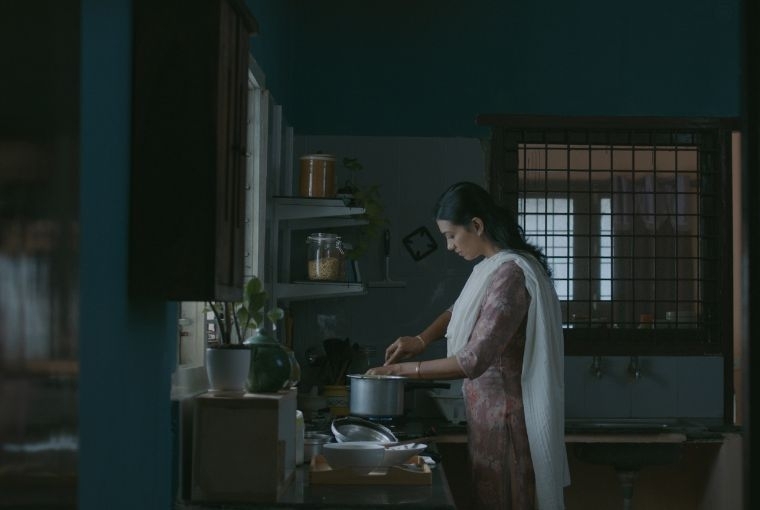
Crafting a Short Film in a Pandemic
Shooting Rimi in late 2020 came with unique challenges. Working on a tight budget and under COVID-19 restrictions, Sharma pulled together a crew of close friends and passionate indie artists. The film was shot entirely at one house location over just four days, with everyone masked and cautious. Post-production had to be done remotely, which meant long Zoom sessions and file transfers to piece the film together. Despite the hurdles, Rimi was completed by March 2021.
Getting the finished film seen was another test of creativity and perseverance. Film festival submission fees are steep, so the team turned to crowdfunding and even sold movie-themed merchandise to cover costs. They targeted a mix of student and indie festivals, sending cold emails to request fee waivers whenever possible. The strategy paid off: Rimi made its way into over 100 festivals around the world, from the Indisches Filmfestival Stuttgart in Germany to the IFFSA in Toronto, Canada.
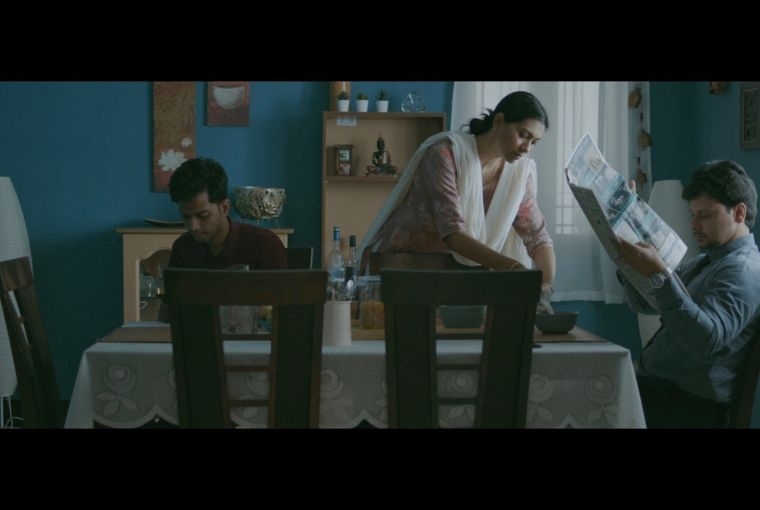
Resonance and Recognition
Anchored by Deepa Kiran’s nuanced performance as Rimi, the film quietly packs an emotional punch. When Rimi finally played to in-person audiences after many virtual screenings, Sharma could tangibly feel its impact. 'When the film ended, it went quiet… then everyone just started clapping,' she recalls of one festival screening. Viewers – especially women – often approached her to share how deeply they connected with Rimi’s journey. She shares that even in her own family, almost everyone was moved to tears.
Not everyone agreed with the film’s perspective, one viewer argued that ‘this doesn’t happen anymore.’ Sharma disagreed, pointing out that while things may be changing for some, millions of mothers still live that reality. 'Maybe it’s not your story or my story,' she told the skeptic, 'But it’s still the story of many of our mothers. This is still happening, and I’ll talk about it till it’s not relevant.' That conviction is at the heart of Rimi’s resonance: the movie shines a gentle light on an often-unseen truth of society and does so with empathy rather than judgment.
After a four-year festival run, Sharma chose to release Rimi on a platform that values independent films. The short is now available to stream on the indie platform MovieSaints. 'Even if I get fewer views, I was adamant to put it on a platform that pays us,' she says firmly. 'We need to be paid for what we’ve made.' It’s a small yet significant stand for the worth of short films and the artists behind them.
Beyond Rimi: A New Chapter
Now, with her debut making waves, Sharma is headed to Berlin to pursue higher studies in sustainability, a step inspired by her urge to drive social change beyond cinema. But she isn’t leaving film behind. She already has a feature script in hand, Away from Home, about three women of different generations on a transformative road trip, which she plans to pitch on the international indie circuit.
Looking back, Sharma knows her simple, heartfelt film has touched many. Rimi is a gentle story told through a compassionate lens, and its authenticity clearly struck a chord. As she steps into her new chapter, Sharma carries with her the quiet power of Rimi, a testament to how even the smallest step toward selfhood can inspire change.
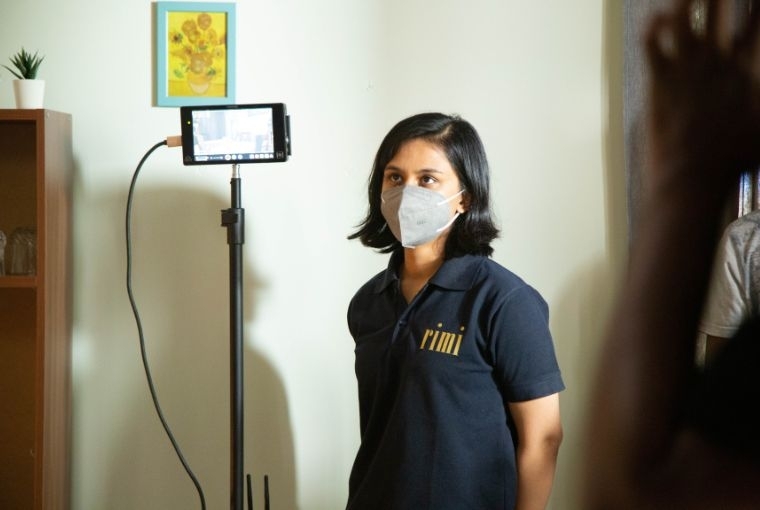
Words Harita Odedra
Date 31-07-2025